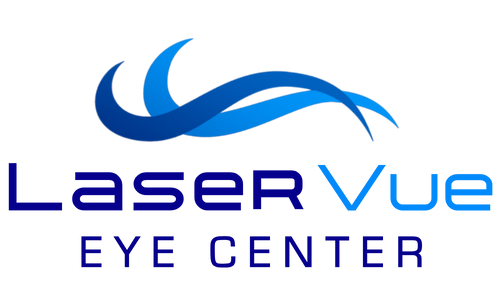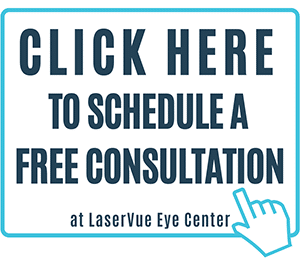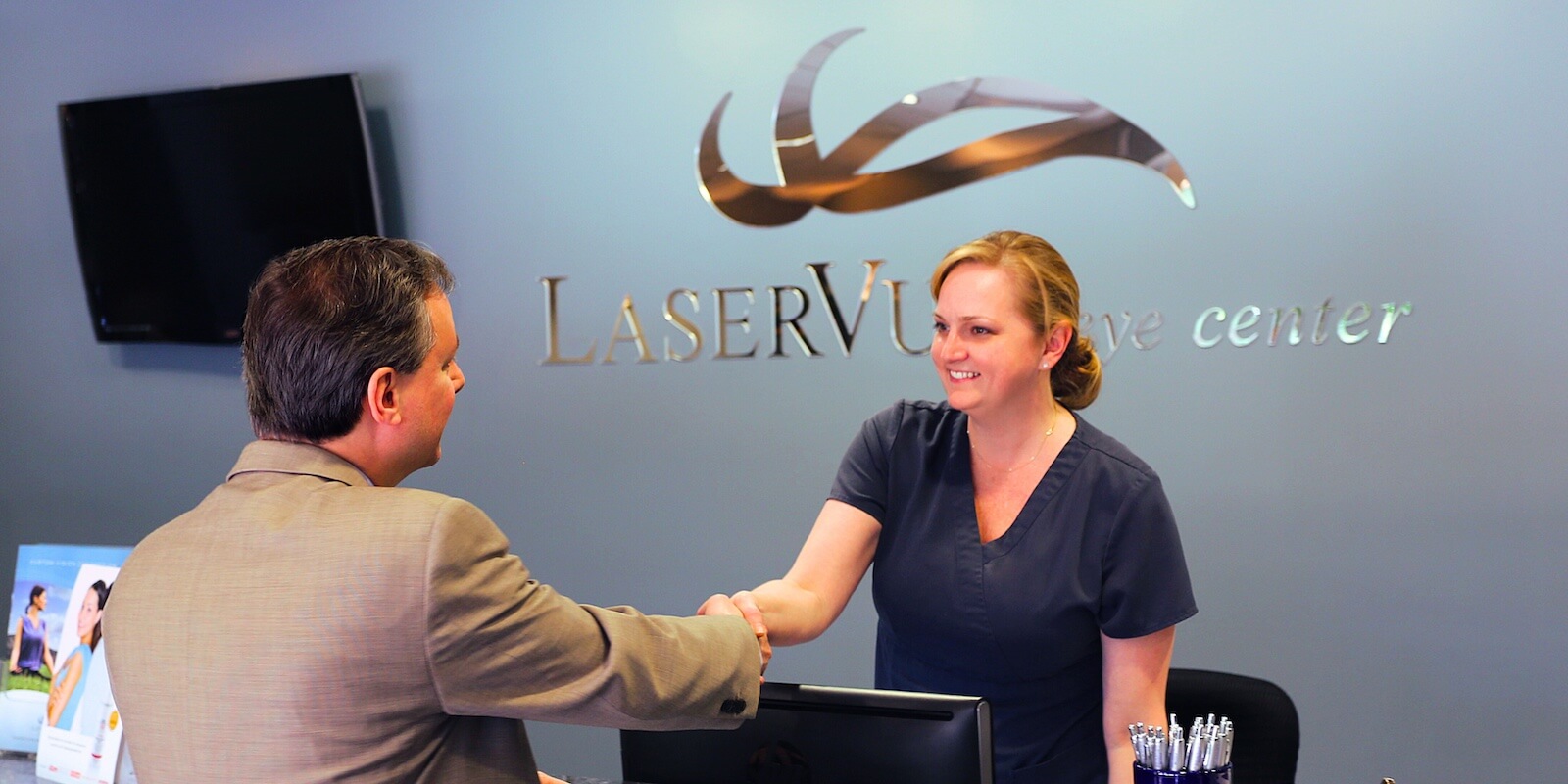Posted by: LaserVue LASIK & Cataract Center in Age-Related Eye Conditions,Cataracts,Dry Eyes,Eye Health,Glaucoma

Even if you’ve had great vision your entire life, once you reach the age of 40 you become much more susceptible to developing eye conditions that can greatly diminish your eyesight. That is why it’s essential to stay vigilant in your efforts to maintain your eye health and remain aware of changes in your vision. Does your family have a history of age-related eye conditions? Do you value your quality of vision and want to maintain it long-term? Then this comprehensive guide to eye care after the age of 40 is for you.
How to Spot the Signs of Aging Eyes
Age-related vision changes can happen at different rates for everybody. They generally reveal themselves gradually and won’t be apparent right away. The following symptoms are signs that your eyes are starting to show their age, and a clear indication it’s time to talk with your eye doctor:
- Blurry vision that makes it hard to read or see things up close (Presbyopia)
- Continuously dry eyes
- Eye floaters and flashes
- Requiring excessive light to see well
- Glares of other disturbances from lights, reflections, or other sources
- Colors appearing faded
- Reduced vision in the dark
- Blurry areas in the center of your vision (Age-Related Macular Degeneration)
Any of the symptoms listed above could indicate the presence of an eye condition or a number of other health concerns. If you experience any significant or sudden changes in your vision, contact your eye doctor right away.
5 Ways to Care for Your Eyes After The Age of 40
As we age, remaining active physically and mentally is important to maintaining our health long-term, and our eyes are no different. Read on for five tips for eye care after the age of 40 and beyond.
1. Eye Care Includes Eating a Healthy Diet of Antioxidants and Vitamins
You may have grown up being pestered to eat your carrots for good eyesight. Turns out, there was something to it after all! A balanced diet that is rich in vitamins and antioxidants such as omega-3s, vitamin C & E, and zinc is your body’s natural defense against many age-related eye diseases.
These essential nutrients provide eyes with the ability to grow healthy cells and decrease your chances of developing eye conditions, such as cataracts and AMD.
2. Schedule Annual Eye Care Especially After The Age of 40
Regular comprehensive eye exams give you and your ophthalmologist a roadmap of how your eye’s health is progressing, and if there are any long-term changes to look out for. Eye exams should become more frequent as you get older, and after 40, it’s recommended that you receive them every year.
3. Care for Your Eyes with Proper Eyewear
Eye protection is one of the most effective precautions you can take every day for long-term eye health. Sunglasses protect your eyes from the sun’s harmful ultraviolet (UV) rays, and safety glasses protect your eyes during physical activity. Protecting your eyes from the elements and injury will prolong your ocular health and provide clearer vision for years to come.
4. Exercise Regularly for Improved Blood Circulations
Regular aerobic exercise has been shown to increase the oxygen supply to your eyes and lower your intraocular pressure. This is vital for reducing the risk of many eye illnesses such as cataracts, AMD, and glaucoma.
You don’t have to be a marathon runner either! Simply taking daily walks around the neighborhood will do the trick.
5. Practice Good Screen Habits
We’ve heard “don’t sit too close to the TV” our entire lives, but now just about everyone has a tiny computer in their pocket, with access to 24/7 entertainment. Every electronic screen emits some level of high-energy blue light, which can be hard on your eyes. Additionally, recent studies have found that we blink less than half as often when looking at a screen. Both of these factors can take a toll on our eyes, and our vision at any age.
Make sure to practice the 20-20-20 rule anytime you are using your computer, smartphone, or television, and give your eyes a good break. To do this, simply look at something at least twenty feet away, for at least twenty seconds, every twenty minutes. Practicing good screen habits as a part of your eye care routine is the best way to protect your eyes at any age including 40 years old.
Comprehensive Eye Care with LaserVue Eye Center for Age 30, 40, 50, 60, and Beyond
At LaserVue Eye Center, we want to ensure the health and well-being of all of our Bay Area patients. That is why our ophthalmologists are dedicated to the research and practice of advanced diagnosis and treatment of all vision issues and ocular diseases. Receiving a comprehensive eye exam is the best way to fend off and correct eye issues at any age including our 40s. Our eye doctors at LaserVue are here to provide all of our patients with personalized care through every stage of life.
If you have experienced any changes in your vision, or have questions or concerns regarding protecting your eyes as you age, contact LaserVue Eye Center today.


